Insights
175 years of innovation: From the first telephone to RCS, AI, and beyond
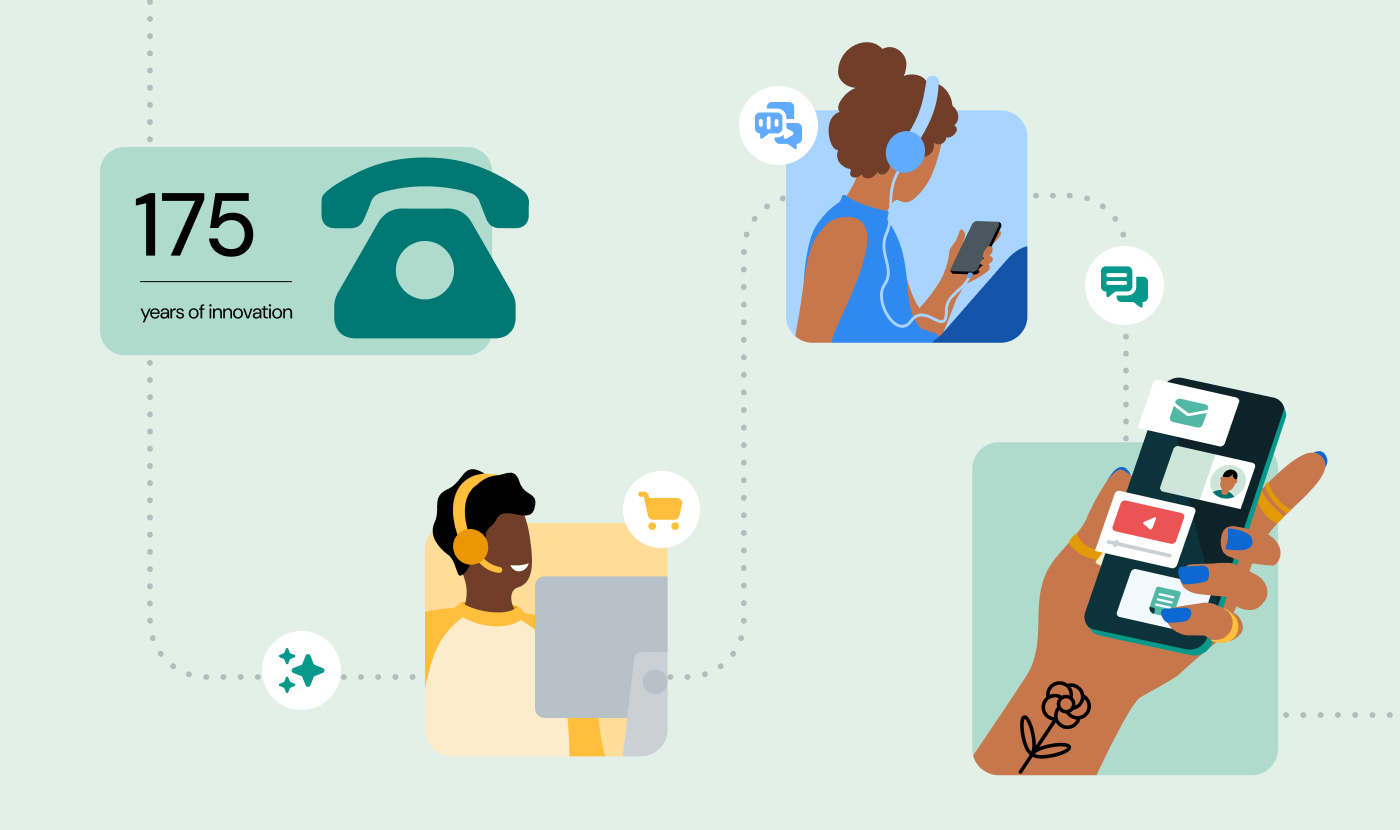
Insights

Can you imagine a world without instant messaging, emails, video calls, or AI-powered everything? Neither can we. Yet maybe none of these technologies would have existed without Antonio Meucci’s invention of the telephone in 1849. From those first conversations over wires to the hyper-connected world we live in today, the tools we rely on to communicate have come a long way, growing into a global network of technologies that connects people and businesses around the world.
As we celebrate this 175th-year milestone, it’s clear that the evolution of communications has shaped not just personal connections, but also the way businesses engage with their customers, drive sales, and build relationships and loyalty on a global scale.
Let’s look back at the key moments of this incredible journey and explore the latest industry insights to see how groundbreaking technologies like AI and Rich Communication Services (RCS) are once again changing the game and setting new standards for customer engagement.
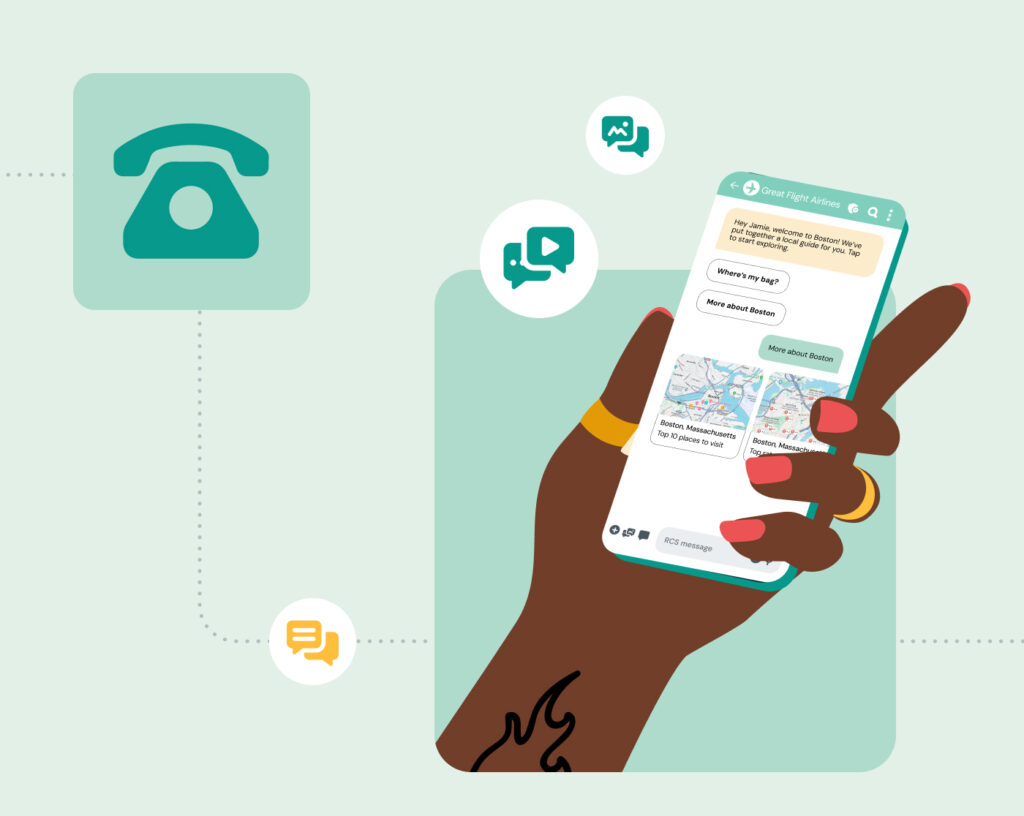
From the early rotary phones to today’s smartphones, the telephone has been at the core of many major communication breakthroughs.
It all started with Antonio Meucci’s invention of the telephone in 1849. Then came Alexander Graham Bell, who made the technology famous in 1876 by getting the first U.S. patent for it and making the first long-distance phone call. Fast forward through some big milestones — like the rise of the internet, email, instant messaging, Voice over IP (VoIP), and mobile phones — and the way we connect has drastically changed.
Today, just as Meucci’s and Bell’s contributions revolutionized how people communicated in their time, AI and RCS are redefining the way people and businesses interact, enabling more meaningful, engaging, and efficient engagements.
A new Sinch survey, which interviewed over 1,000 consumers in North America, shows the crucial role of RCS and AI in helping businesses meet customer needs and expectations and their direct impact on long-term brand loyalty, especially as Millennial and Gen Z consumers embrace these technologies.
In markets like the U.S., where app-like, AI-driven business messaging hasn’t fully taken off yet, this creates exciting opportunities for businesses to enhance customer engagement and drive differentiation.
In case you ever doubted it, great customer service is key in building long-term brand loyalty. Our survey revealed that 75% of consumers think exceptional customer service would boost their loyalty to a brand.
But great customer care goes beyond just solving problems. It’s also about creating meaningful connections through helpful, personalized interactions, and AI is a powerful way to do just that.
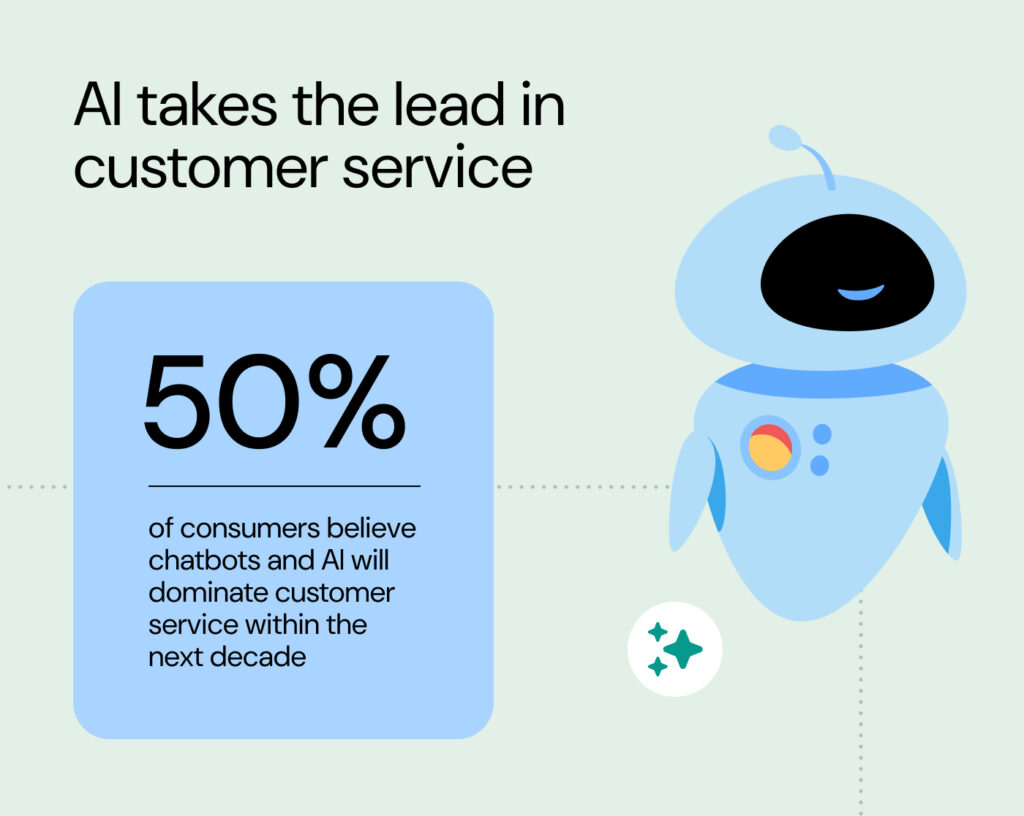
Imagine chatting with a bot that knows your name, remembers your past purchases, and can even suggest the best products to complement them during the Black Friday and Cyber Monday sales. Sounds like a pretty good experience, right? That’s the magic of AI in customer service, and consumers are already convinced:
50% of the consumers we surveyed believe chatbots and AI will dominate customer service within the next decade.
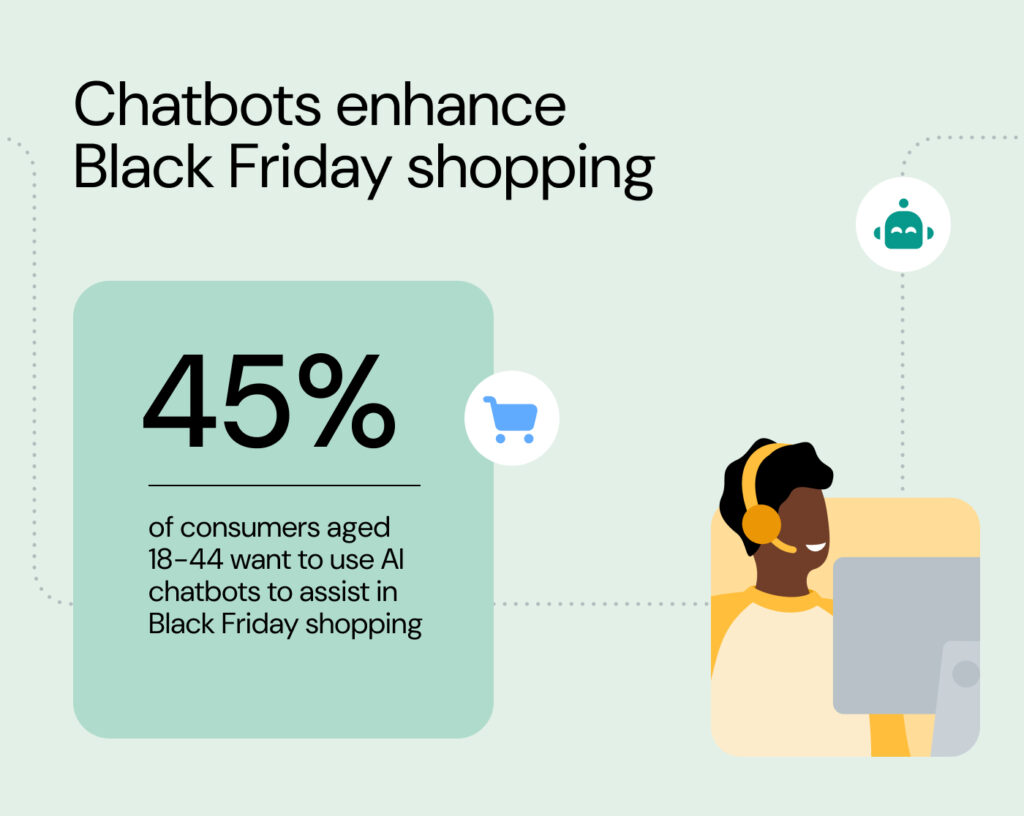
Younger generations are particularly open to AI chatbots for shopping; 45% of consumers aged 18-44 say they want to use chatbots to assist in Black Friday and Cyber Monday shopping.
As businesses gear up for the surge in customer inquiries during year-end sales, AI can be the game-changer that keeps interactions engaging while driving conversions and loyalty — especially when combined with a rich, interactive channel like RCS.
Now imagine receiving a branded, verified message from your favorite retailer that lets you browse new arrivals, watch a product demo, and complete your purchase — all within your native mobile inbox. That’s RCS!
RCS business messages offer more than just text. They bring customer communications to life in a rich, secure environment, all in the native mobile inbox — and it makes all the difference:
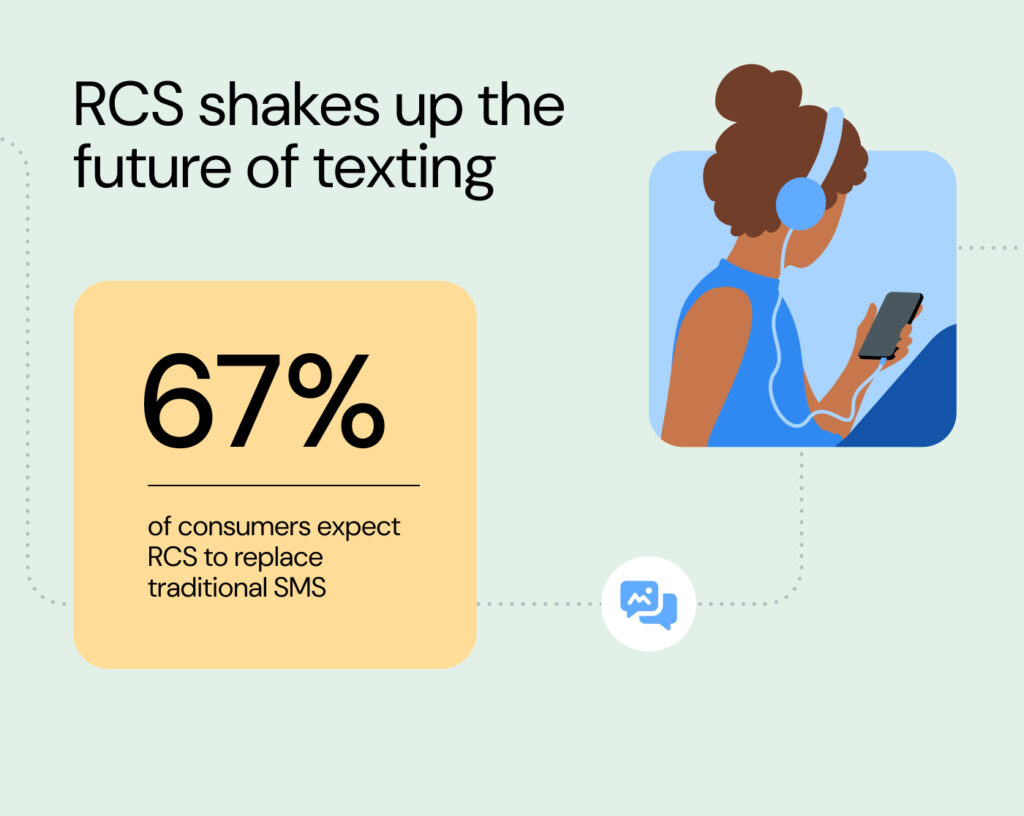
And here again, consumers are already fully on board: 67% expect RCS to replace traditional SMS. That’s proof of the incredible potential of RCS in shaping the future of customer communications and meeting the growing demand for hyper-engaging, real-time mobile experiences.
We’re stepping into an exciting future of business communications where rich, interactive, and personalized interactions with customers are becoming the norm.
From human-like, always-on customer care to app-like, immersive messaging experiences that invite customers to take action, the potential is endless. Companies that embrace these changes will not only keep their customers engaged and happy but also build stronger relationships that stand the test of time.
At Sinch, we’re at the forefront of these evolutions, empowering our customers to engage with their customers in ways they never thought possible.
Find out more about Sinch AI and Sinch RCS and how we help our customers succeed through innovation.